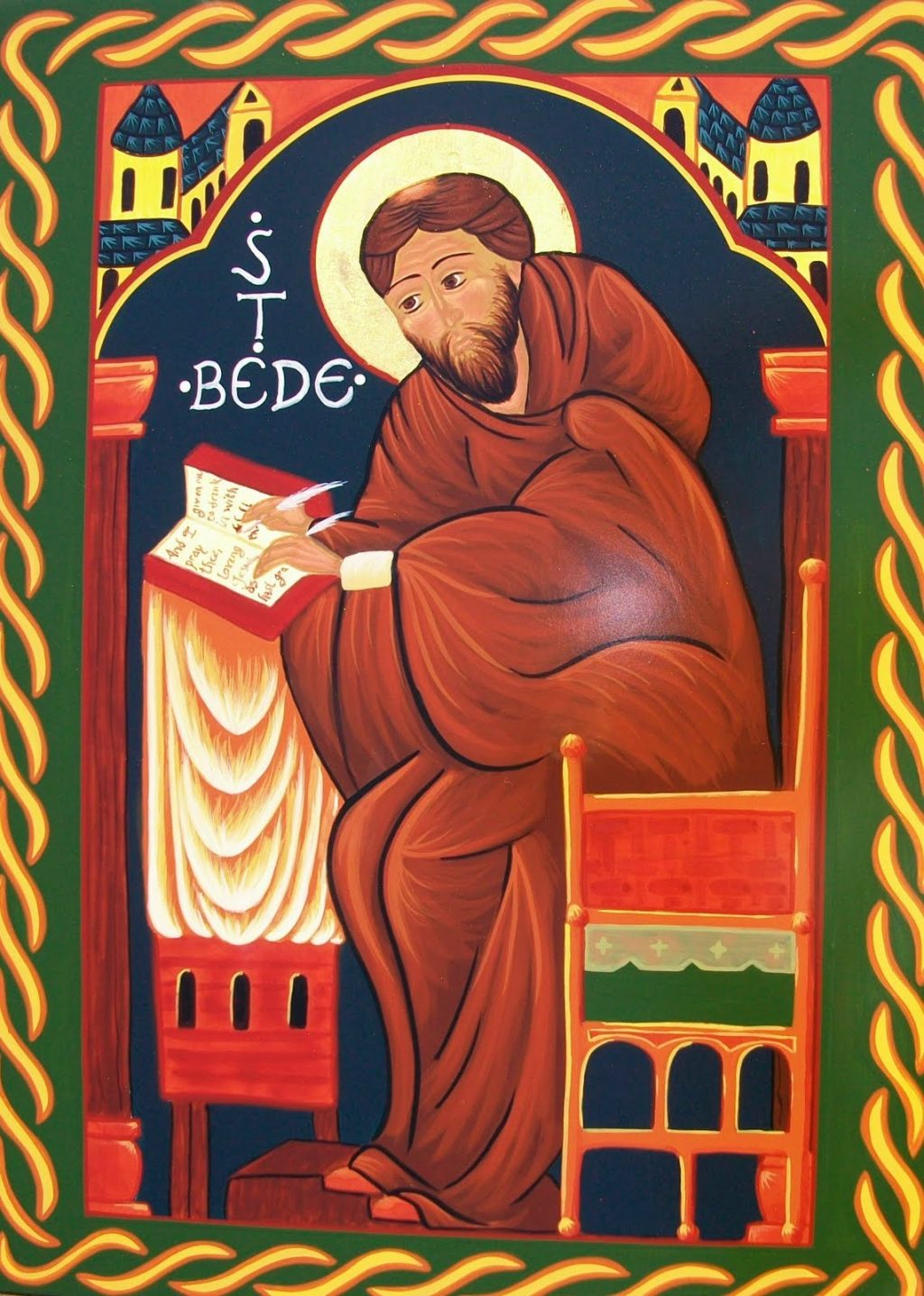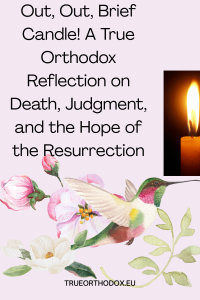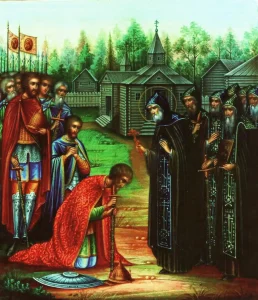To Mark the Occasion of the Feast of St. Bede

Editor’s note: the article below was written and submitted to us on yesterday’s feast of the St. Bede by one of the members of our faithful in England. We have published it with some minor edits.
It is an auspicious time of year for the English of the True Orthodox Church. On Friday we celebrated the memory of St. Aldhelm, the father of English poetry, which means, ultimately the founder of the tradition which even now dominates all the airwaves everywhere – English song. Yesterday, we commemorated our Father among the Saints, the Apostle of the English, St. Augustine, the first Bishop of Canterbury. Today, we celebrate the Venerable Bede, the Father of English History, and the father of the discipline of History as we know it today.
To mark the occasion, here is a favourite passage from St. Bede’s Ecclesiastical History of the English People, which relates the event in the life of St. Gregory the Great, the other Apostle of the English, who would be the Pope who sent St. Augustine on his historic mission to convert the English to the True Faith.
Nor is the account of St. Gregory, which has been handed down to us by the tradition of our ancestors, to be passed by in silence, in relation to his motives for taking such interest in the salvation of our nation. It is reported, that some merchants, having just arrived at Rome on a certain day, exposed many things for sale in the marketplace, and abundance of people resorted thither to buy: Gregory himself went with the rest, and, among other things, some boys were set to sale, their bodies white, their countenances beautiful, and their hair very fine. Having viewed them, he asked, as is said, from what country or nation they were brought? and was told, from the island of Britain, whose inhabitants were of such personal appearance. He again inquired whether those islanders were Christians, or still involved in the errors of paganism? and was informed that they were pagans. Then fetching a deep sigh from the bottom of his heart, “Alas! what pity,” said he, “that the author of darkness is possessed of men of such fair countenances; and that being remarkable for such graceful aspects, their minds should be void of inward grace.”
He therefore again asked, what was the name of that nation? and was answered, that they were called Angles. “Right,” said he, for they have an Angelic face, and it becomes such to be co-heirs with the Angels in heaven. What is the name,” proceeded he, “of the province from which they are brought?” It was replied, that the natives of that province were called Deiri. “Truly are they De ira,” said he, “withdrawn from wrath, and called to the mercy of Christ. How is the king of that province called?” They told him his name was Ælla: and he, alluding to the name said, “Hallelujah, the praise of God the Creator must be sung in those parts.”
Then repairing to the bishop of the Roman apostolical see (for he was not himself then made pope), he entreated him to send some ministers of the word into Britain to the nation of the English, by whom it might be converted to Christ; declaring himself ready to undertake that work, by the assistance of God, if the apostolic pope should think fit to have it so done. Which not being then able to perform, because, though the pope was willing to grant his request, yet the citizens of Rome could not be brought to consent that so noble, so renowned, and so learned a man should depart the city; as soon as he was himself made pope, he perfected the long-desired work, sending other preachers, but himself by his prayers and exhortations assisting the preaching, that it might be successful. This account, as we have received it from the ancients, we have thought fit to insert in our Ecclesiastical History.
– From the Ecclesiastical History of the English People, Book II Chapter I
St. Bede himself entered the monastic life at age 7, and lived a wonderful and peaceful life devoted to our Lord, and the Lord was pleased to grant His servant the opportunity to develop his intellect and gift for writing to such an extent that St. Bede remains a bright light in the firmament of God’s saints to this day, so bright in fact, that many of those outside of the Church still know his name.
Certain things are revealed to those in the true Faith when contemplating St. Bede and his work. It is notable that in English schools St. Bede is mentioned, but not taught. In the captured English ‘education’ system, history begins at 1066, although this date itself is never given the correct context of true history – in that English children are taught nothing of the ‘Great Schism’ in which the Roman church fell under the sway of the devil and his worldly powers. Thus the Norman conquest is not presented to anyone as a pogrom of the Orthodox, which it clearly was. The Orthodox Church, indeed, is barely mentioned in the Western world.
St. Bede is referenced, but never read. Anyone who takes the time to read him will find themselves transported directly to the True Orthodox reality of miracles, of the fearless Apostles and soldiers of the blessed armies of the Lord, God, and Saviour Jesus Christ. The flowering of English sanctity that St. Bede relates is quite as wonderful as any other era of the history of the true Church of God, just as full of lessons and wonderful examples of sanctity, bravery and tireless devotion that characterises the Church as any other. May the Lord make us worthy to inherit and guard this priceless legacy. Yes, the West has fallen, but nothing can alter the fact that it was the Orthodox Church that laid its foundations, and surely this is cause for us to remain hopeful and expectant of God’s mercy in these days of total apostasy.
Finally, here is a moving passage from the entry on St Bede in A Century of English Sanctity by Vladimir Moss:
So successful was he [St Bede] in fulfilling this calling, that his works became the staple education of generations of Christians in the lands of North-West Europe. St. Boniface, the enlightener of Germany, wrote to England for copies of his works, and on hearing of his repose said: “The candle of the Church, lit by the Holy Spirit, is extinguished.”
Holy Father Bede, pray to God for us!



